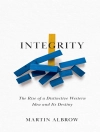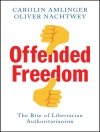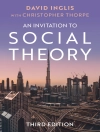What’s the use of sociology? The question has been asked often enough and it leaves a lingering doubt in the minds of many. At a time when there is widespread scepticism about the value of sociology and of the social sciences generally, this short book by one of the world’s leading thinkers offers a passionate, engaging and important statement of the need for sociology.
In a series of conversations with Michael Hviid Jacobsen and Keith Tester, Zygmunt Bauman explains why sociology is necessary if we hope to live fully human lives. But the kind of sociology he advocates is one which sees ‘use’ as more than economic success and knowledge as more than the generation of facts. Bauman makes a powerful case for the practice of sociology as an ongoing dialogue with human experience, and in so doing he issues a call for us all to start questioning the common sense of our everyday lives. He also offers the clearest statement yet of the principles which inform his own work, reflecting on his life and career and on the role of sociology in our contemporary liquid-modern world.
This book stands as a testimony to Bauman’s belief in the enduring relevance of sociology. But it is also a call to us all to start questioning the world in which we live and to transform ourselves from being the victims of circumstance into the makers of our own history. For that, at the end of the day, is the use of sociology.
Inhoudsopgave
Preface vii
Introduction 1
1 What is sociology? 7
2 Why do sociology? 35
3 How to do sociology? 67
4 What does sociology achieve? 105
Over de auteur
Zygmunt Bauman (1925-2017) was Professor Emeritus of Sociology at the University of Leeds. His many books have become international bestsellers and have been translated into more than thirty languages.
Michael Hviid Jacobsen is Professor of Sociology in the Department of Sociology and Social Work, Aalborg University, Denmark. He has published extensively on issues such as social theory, death and dying, and methodology.
Keith Tester is Professor of Sociology at the University of Hull. He has published widely in sociology and is recognised as one of the leading interpreters of the work of Zygmunt Bauman.












